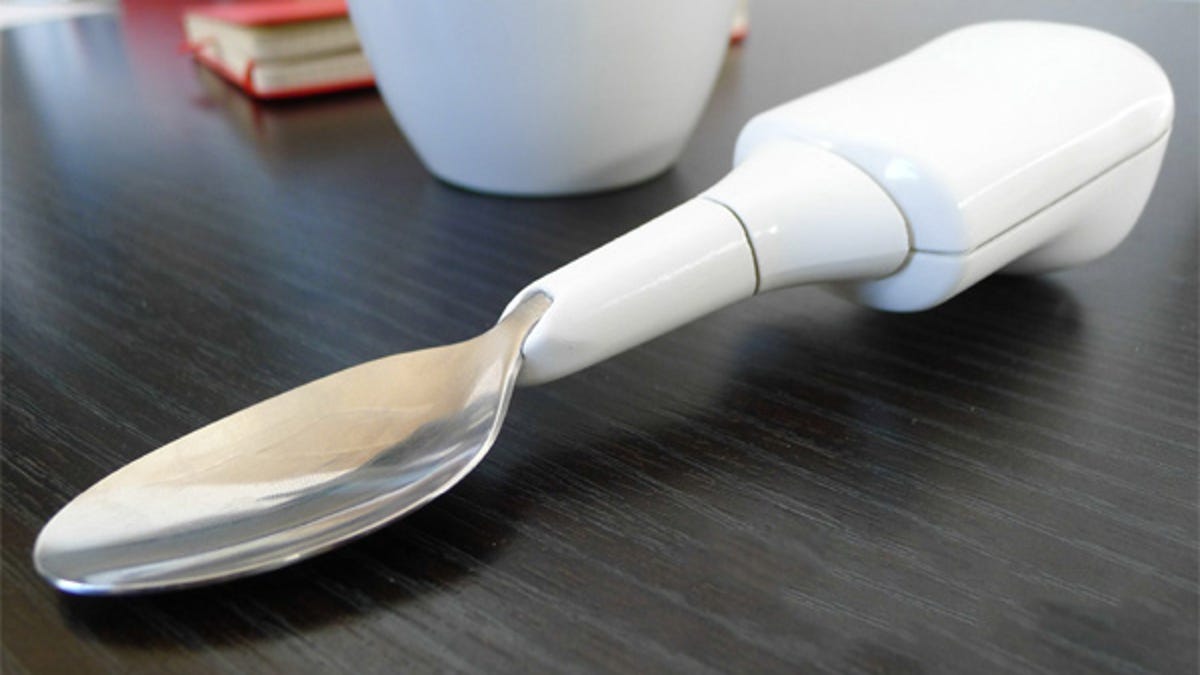Smart spoon helps stabilize Parkinson's tremors
Lift Labs out of San Francisco says its patented Liftware Spoon will be available next month.

For many people living with Parkinson's disease, the mere act of chewing and swallowing can be a challenge. One way to deal with this is to blend foods up to minimize the need to chew. But what if it's difficult merely bringing the spoon to one's mouth without spilling its contents?
Enter the Liftware Spoon by Lift Labs in San Francisco -- poised to hit the market in September -- whose patented spoon technology actually helps stabilize tremors in people with Parkinson's, essential tremor, and related disorders.
The folks at Lift Labs say the spoon uses an "active cancellation of tremor" technology that works to counteract the tremors people can experience in their hands and help prevent spills.
"The idea is to use active cancellation [currently in noise-canceling headphones] to stabilize larger-scale motion," Anupam Pathak, founder and CEO of Lynx Design, which is behind Lift Labs, said in a news release. While doing his Ph.D. on new materials that can be used for active cancellation in the military, Pathak said he "figured out how to make the hardware for active cancellation of human tremor very small, and realized that this would be the perfect application for active cancellation technology."
The Liftware spoon constantly steadies itself thanks to an embedded computer that takes the motion signals detected by the sensors, identifies the user's tremor, and then moves the spoon in the opposite direction of that tremor. The company reports that lab tests showed a more than 70 percent reduction in tremors.
And while it won't be the first utensil on the market to help people with tremors eat with dignity, it's probably the smartest. Many existing utensils, plates, mugs, and "crumb catchers" (yes, these are bibs) are pretty old tech, focusing on ergonomics and extra hand and finger holds.
The folks at Lift Labs say the spoon will cost $295, and they've also developed a related free iOS and Android app called Lift Pulse that records a person's tremor using the phone's built-in accelerometers and calculates its magnitude. Users can set a baseline tremor that subsequent readings are compared to.
Maybe someday spoons will be smart enough to be customizable to each user based on previous readings and baselines adjusted for time of day, energy level, and so on. For now, Liftware looks like the first step in that direction.

